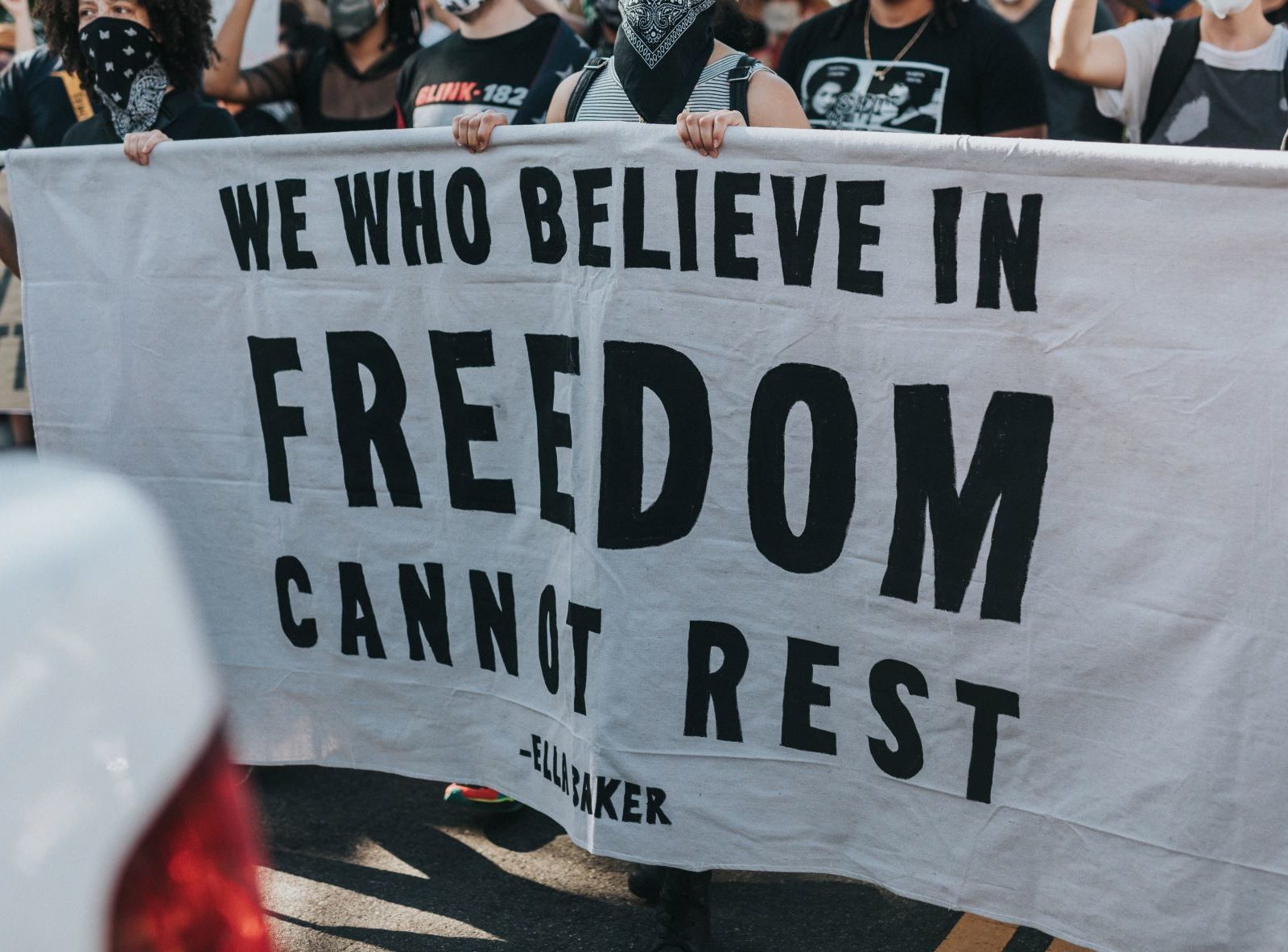Yes, Ketanji Brown Jackson: Wading through Turbulent Waters
By: Vivian Jackson, Peoples Congregational UCC, Washington, DC, SC2ER Facilitator and Member of UCC Racial Equity Advisory Task Force

By: Vivian Jackson, Peoples Congregational UCC, Washington, DC, SC2ER Facilitator and Member of UCC Racial Equity Advisory Task Force

I write from the perspective of a 73-year-old Christian woman of African descent who grew up in the segregated South and has lived long enough to witness the achievement of this very special person. In her speech after the confirmation vote, her first words of thanksgiving were “to God, for delivering me as promised and for sustaining me throughout this nomination process… I have come this far by faith… and to those who have lifted me up in prayer.” Yes, she is a Black woman who recognizes the role of faith – of her own and of others – in moving us through trials and tribulations.
Judge Jackson was born to parents who believed in the importance of imprinting the link to the motherland by giving her an African name – Ketanji – meaning “the lovely one.” As written by Ifeoma Ajunwa for Slate, “In a country where African men and women were forced to change their names by slave owners, and where having an African-sounding name can still hurt your chances of landing a job, [the] simple fact that [she has an African name] is a small but meaningful step forward for Black Americans.” Yes, her very name boldly declares her heritage.
And Judge Jackson clearly recognizes the extraordinary symbolism of a Black woman on the bench of the highest court in the land. She took note that in one generation, we could witness the movement from the life of her parents in segregation to her life on the Supreme Court. Yes, she embodies hope for now and the future!
I do not know all of the ups and downs of her remarkable journey, but I do know that the intersection of racism and sexism in America has produced and continues to produce harm in the lives of women of African descent. To this day, we are confronted with lingering stereotypes that were birthed from the days of our enslavement. Consider the image of “mammy,” the subservient caregiver, and notice that only just recently, the stereotyping imagery of the “Aunt Jemima” brand was changed. Another stereotype is the “Black matriarch” who runs the family alone, supposedly minimizing the role and power of the Black man. A more recent image is the “welfare mother” who, it is argued, abuses the “system” through her motherhood. And finally consider “Jezebel,” a woman who exudes sexuality and lack of morality. These images and stereotypes have influenced and constrained all domains of life for Black women – public policy, workforce, entertainment, education, housing, health, etc. Although Black women have had the highest workforce participation among all women for years, they are still relegated to the lowest paying jobs and are at the bottom of earnings by race and gender. Black women are still over three times more likely to have childbirth related deaths than white women. These are just two examples of the generational consequences of these intersectional biases. But through it all, there are some who have waded through these turbulent waters to a place that declares our unwillingness to be held back. Yes, Judge Ketanji Brown Jackson declared that she is an embodiment of Maya Angelou’s words, “Leaving behind nights of terror and fear / I rise / Into a daybreak that is wondrously clear / I rise / Bringing the gifts my ancestors gave, / I am the dream and the hope of the slave. I rise / I rise / I rise.”
In Galatians 3:28, the author of this epistle casts a vision, a dream of the world transformed by the life and witness of Jesus Christ: “there is neither Jew nor Greek, there is neither bond nor free, there is neither male nor female: for ye are all one in Christ Jesus.” An equitable world is one in we actually live as if “we are all one.” It is a world in which identity markers, such as race or gender, are irrelevant in the structures of our society and in our daily interactions with each other. It is the fulfillment of Dr. King’s beloved community, “in which all forms of discrimination, bigotry, and prejudice will be replaced by an all-inclusive spirt of sisterhood and brotherhood.” Although Judge Jackson’s confirmation is a historic moment, as people of faith, we dare not rest until the vision of a world transformed and “the dream and the hope of the slave” are fully realized in our midst. Yes, soon to be Justice Ketanji Brown Jackson will do her part. Will you do your part? Let’s make it so.
SHARE THIS NEWS ARTICLE
Participate in UCC’s grassroots advocacy network composed of individual members and local UCC congregations across the country. Receive education, event notifications and resources as well as timely information on how you can take action to support a more just world for all.
Join JPANet and take action today!Sign up to receive alerts about new stories and resources. You’ll also enjoy our Join the Movement newsletter, featuring changemaker profiles, reflections on current events in the movement toward racial justice, and more. Get sneak previews and information about upcoming events, workshops and webinars.

